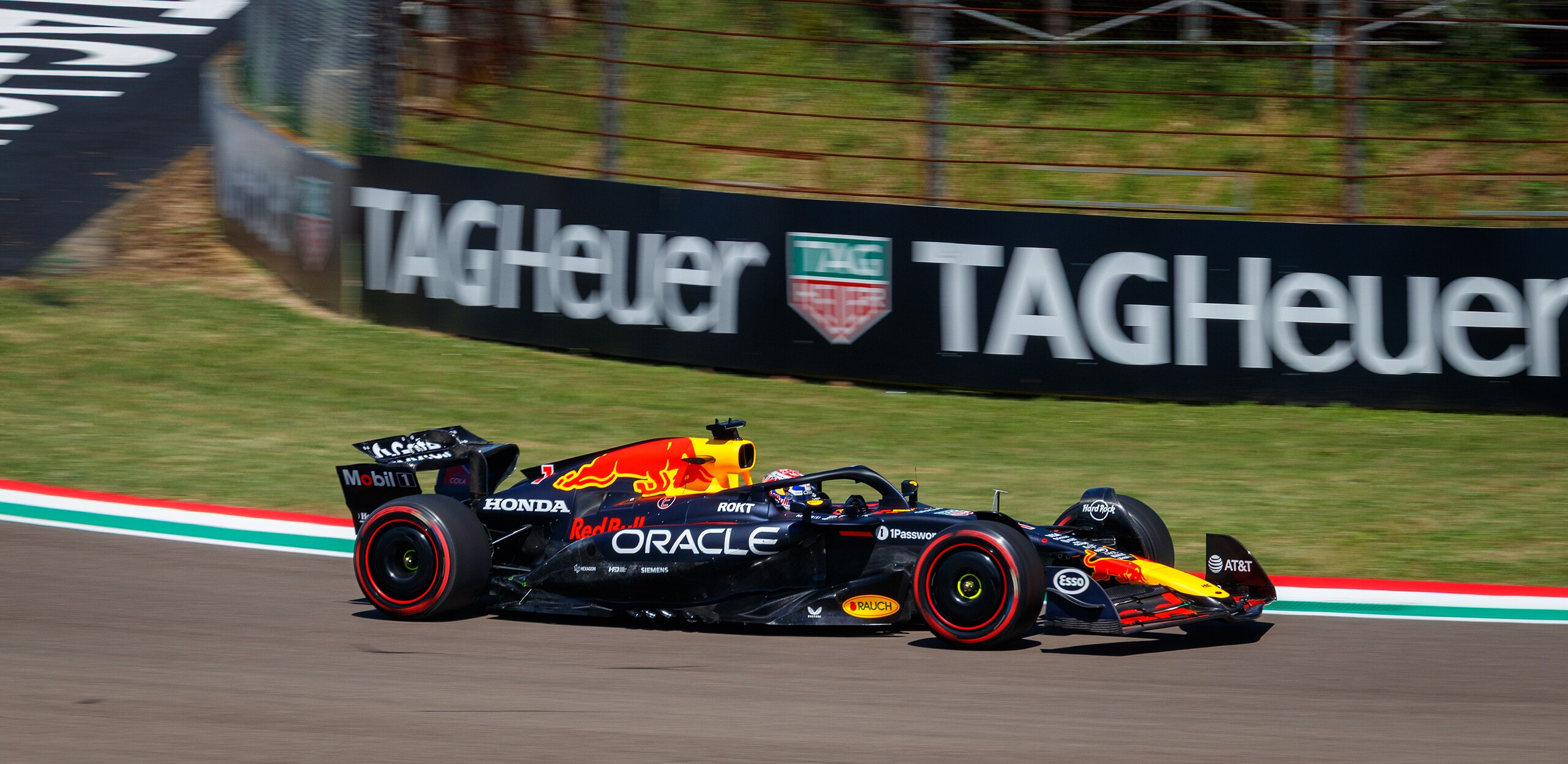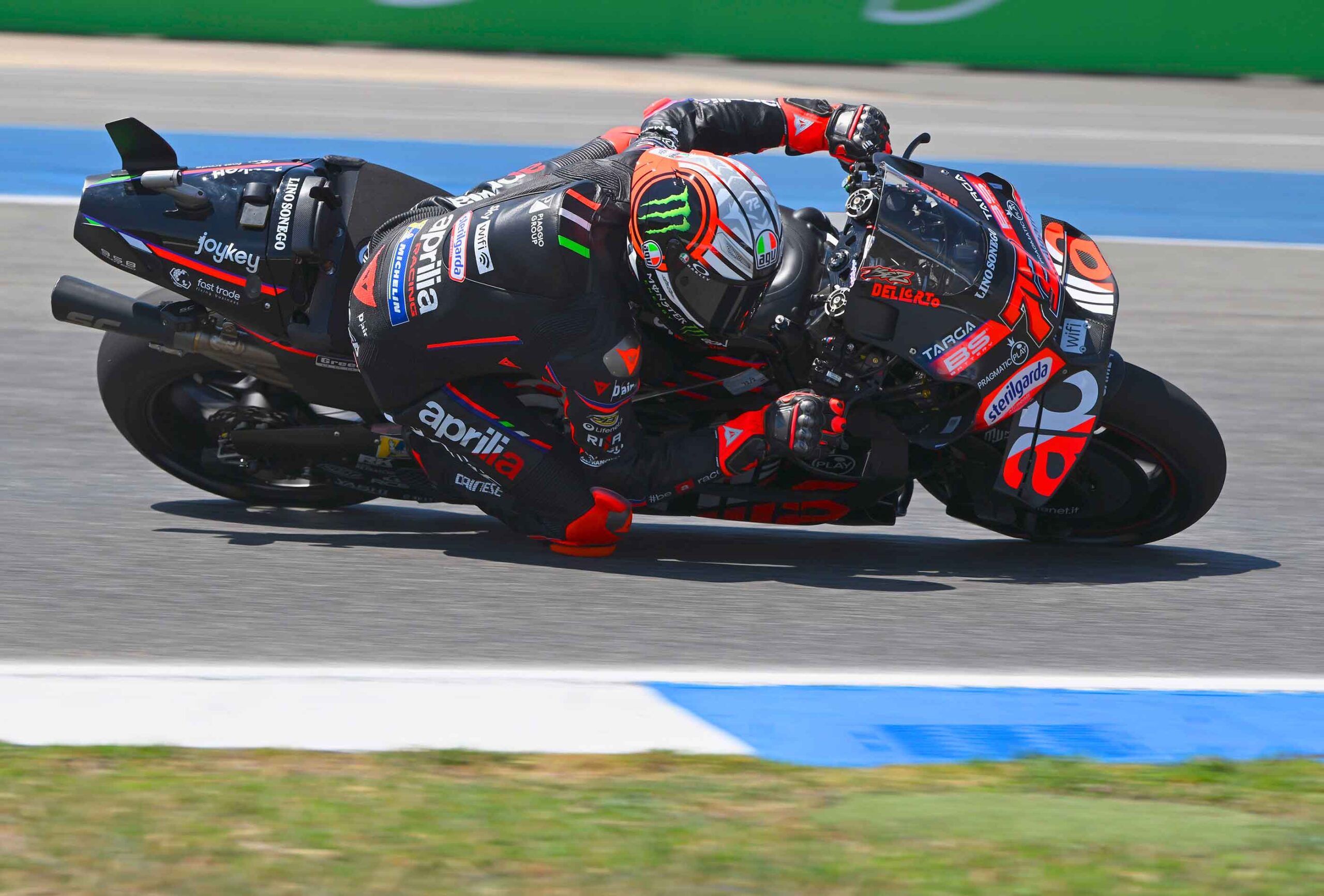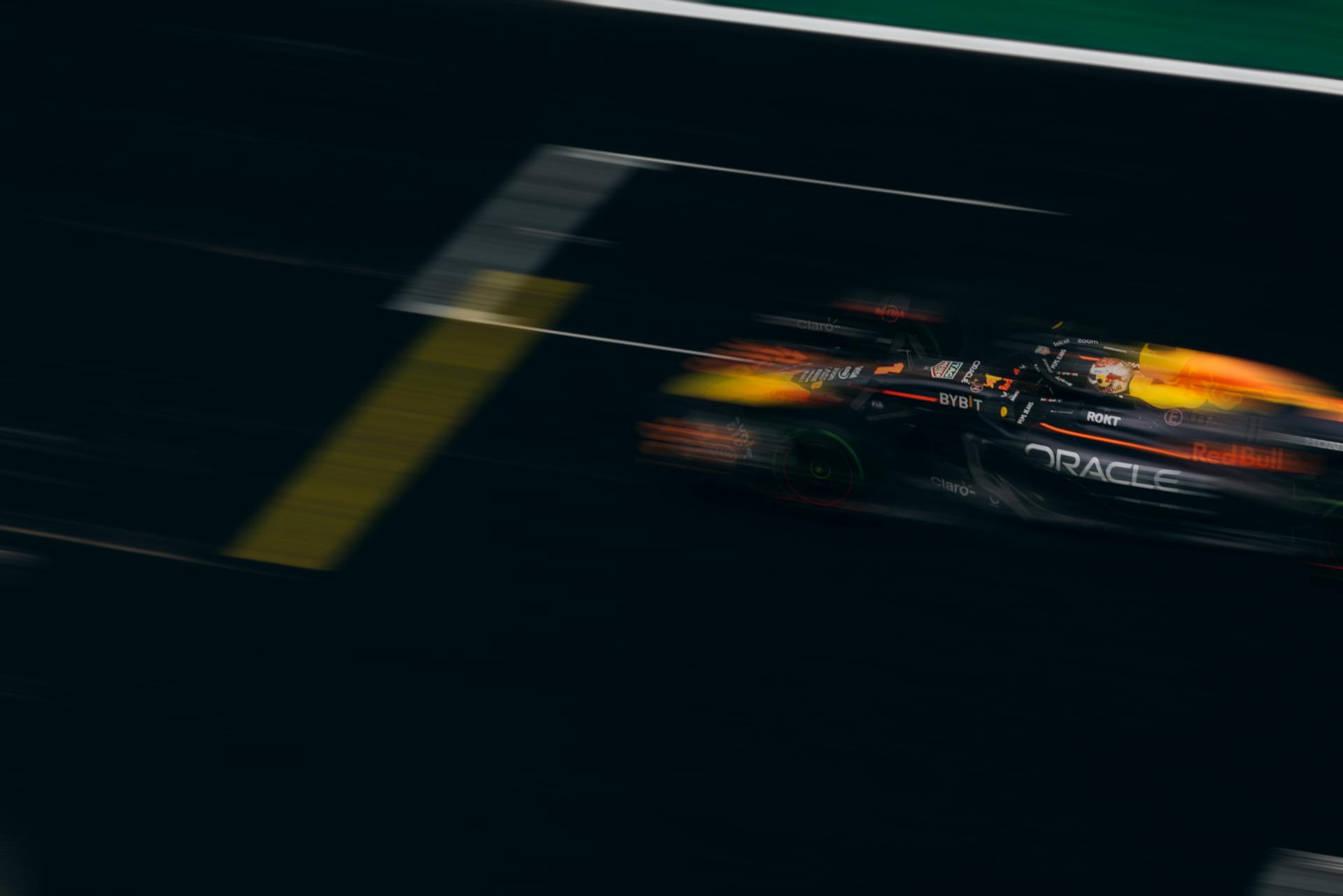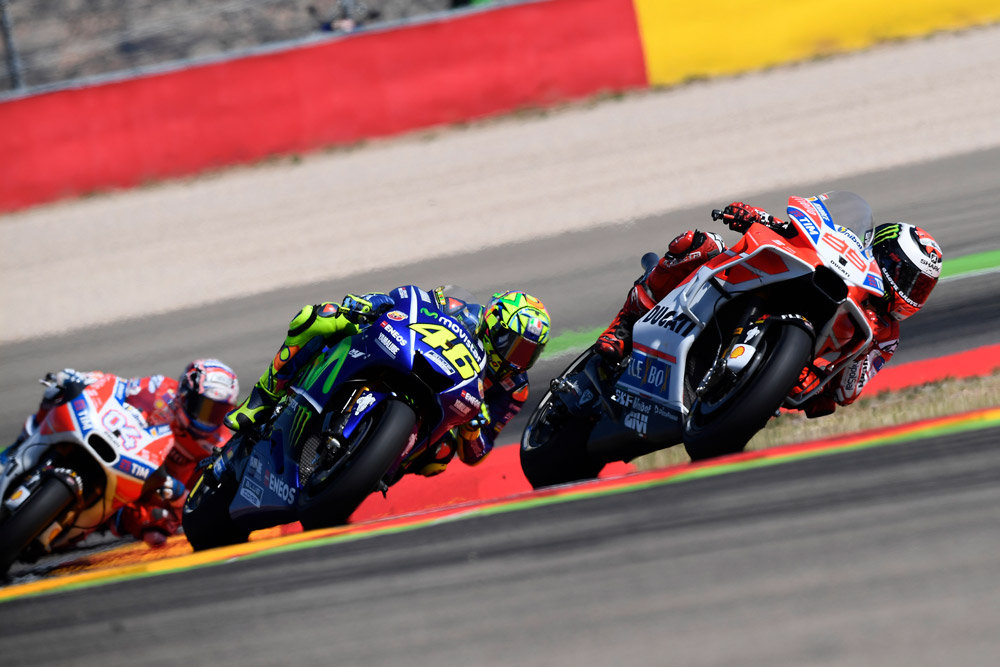Are you willing to sponsor?
Are you ready to explore the transformative power of athlete sponsorship for your brand? Click here to learn more about how sponsorship can help brands grow and thrive in the exciting world of motorsports.
By Emanuele Venturoli| Posted August 29, 2023 | In MotoGP, Sponsorizzazioni Sportive, Sport Sponsorship, Sports Marketing
A relationship little investigated on the desks of sports marketing classes but very frequent in reality is that between the so-called silly season (the market moment of drivers and teams that often takes place during the sports year) and the world of
sponsorship
. How does sponsorship change if it changes who is behind the handlebars or behind the wheel? What should a sponsor who is within a multi-year contract do if all of a sudden the rider chooses to change teams, or if the team chooses other athletes? And finally, how do you manage the continuous and natural change of sports property within a partnership program?
The term “Silly Season” originated in the late 19th century with connotations far removed from the world of sports, referring to the time of the political and legal year when Parliament was not in session and the Courts were closed. Lacking news of significance to report, newspapers then had to make do with “silly,” or silly and unimportant news, such as gossip, rumors and petty reporting.
The Silly Season soon came to the world of sports. Today the term denotes anything that is not related to sports news in the strict sense, mainly market rumors and news of changes at the top or in the composition of teams.
It is a concept that has radically changed its connotations, especially in time, over the years. If until about twenty years ago the market-both for managers and drivers-was discussed and concluded in a very few weeks toward the end of the season, nowadays flexibility is maximized, horizons have lengthened and timelines necessarily dilated. The market is always open, and not a day goes by without -from this side or that side- rumors of a possible change of helmets.

Often forgotten is the double thread that ties sponsorship to the affairs of the pilot market. However, those who follow these pages assiduously know well the reasons for affinity, opportunity and closeness of values that must underlie any sports partnership project. A sponsor wants the sponsored team to represent him or her in image, character, and that famous vision/mission/purpose triptych that marketers know all too well.
In that sense, and to get out of metaphor, it is not the same thing to have Daniel Ricciardo or Liam Lawson behind the wheel, just as it is not the same thing to have Alex Marquez or Johann Zarco.
In support of this consideration, there are numerous sponsorship contracts in two and four wheels that are signed precisely because this or that rider is on that team. This is the case of the many Mexican companies that appear on the livery of Red Bull Racing thanks to the presence of Sergio Perez, or the activities of Estrella Galicia in MotoGP and Formula 1, inextricably linked to the presence of an Iberian driver. The relationship between Honda, Idemitsu and the Japanese riders or that between Finland’s Wihuri and Scandinavian drivers follow roughly the same guidelines.
In an ideal world, the triangle between teams, sponsors and drivers always rests on a common foundation. That bouquet of values and heritage, that shared history and common roots we so often read about in the world of sports marketing are the ingredients for recipes for great success in sports, marketing and popular affection.
However, if such perfect synergies are often difficult to build, they are even more difficult to maintain over a place period. So what happens to the sponsorship world if a rider changes teams (the case of Rins or Morbidelli in MotoGP), retires (Vettel, some time ago) or is replaced by a better performing colleague (De Vries a few weeks ago?).
The cases are multifaceted and are first handled by the contractualities that bind the sponsor to the team and then by an evaluation/forecast about the effectiveness of the operation so far and from here on out.
As mentioned, several sponsors sign with this or that team precisely because there is this or that rider at the wheel or handlebars. Whether for geographic reasons or for reasons of long association, the sponsor makes no secret of why he is there and in the contract ensures that his fortunes are tied to those of his darling. As long as the pilot is there, the sponsor stays; otherwise it is discussed. This was the case with Kemppi, a Finnish metal company that ended its relationship with Williams as soon as Valtteri Bottas left Grove in the direction of Mercedes.
In other cases, sponsorship begins following the rider but continues even after the rider leaves the team. This is the case, for example, with Santander, who comes to McLaren in 2007 to follow Alonso but stays even after the Asturian leaves Woking to go to Renault after only one year (the two will not exactly coincidentally meet again in 2010 in Ferrari). These are situations dictated by the expediency, or being expedient, of the sports marketing project, where it is clear that to work certain agreements must, at a minimum, be multi-year in duration.
In still other cases, it is really the pilot or one of his family members who is the sponsor, as was the case for Nikita Mazepin, and in that case it is not ungenerous to say that a discussion is not really there.

As is evident, the case histories are varied and dependent on many factors. Larger sponsors and more prominent companies have greater negotiating margins, but they are also bound by different image, contractual, and visibility reasons. Conversely, smaller sponsors have more flexibility of movement, but also less say when it comes to market reasoning.
In any case, understanding market tensions and staying abreast of what is happening in sponsored series is as much a duty of sponsors as timely informing them of team movements is an obligation of teams and organizations.
At the same time, possessing up-to-date reporting about the efficiency of the sponsorship operation and having fresh data on ROI and project performance is the first step in making informed and effective decisions.
While in fact not all sponsorships are based on the presence of a specific pilot, it is absolutely essential that there be assonance and harmony within the entire partnership project.
Marketing agencies
sports play a decisive role at this stage. With reliable sources and knowledge of the industry these can provide their clients with reliable information and grounded advice on how to act in the event of a market that is a little too fizzy.
The pilot market-but the same is true in other sports-has a significant correlation with sponsorship management and decision-making on partnerships.
Different athletes have different profiles, values, backgrounds, and attitudes, and these need to be aligned with the sponsorship project. In the combine of driver, team, and sponsor, it is necessary for all three players to find a balance and commonality of vision and identity. Precisely for this reason, the Silly Season and the pilot market are important times in the life of a sponsorship and must be carefully managed before making decisions of any kind and in which lesportivo can be extremely helpful.
Sponsorships are, once again, living and changing objects, and therein lies their appeal and effectiveness. As teams, series, sports, and athletes change over the years and eras, so must partnerships change, knowing how to move with the currents of time.
There are no certain rules, or right moves to be made in case a driver arrives who is disliked by the sponsor or a particularly beloved one leaves. Ongoing discussion with the sports property and regular reading of sponsorship trend reports are the two basic compasses on which to base any change of direction, potential or factual.
Are you ready to explore the transformative power of athlete sponsorship for your brand? Click here to learn more about how sponsorship can help brands grow and thrive in the exciting world of motorsports.

A graduate in Public, Social and Political Communication from the University of Bologna, he has always been passionate about marketing, design and sport.
The online platform where you can discover the latest trends, strategies and insights from the exciting world of sports marketing.
View our blog
July 28, 2025
Red Bull Racing’s sponsors: A winning system With an extraordinary sequence of successes in recent seasons, Oracle Red Bull Racing has also established itself as one of the benchmark te[...]
Read More
July 25, 2025
The 2026 MotoGP calendar is preparing to make history: for the first time in more than two decades, the Circus will return to race in Goiânia, Brazil, with a possible South American exp[...]
Read More
June 17, 2025
Starting in 2027, MotoGP is preparing for a momentous change that will redefine the face of motorcycling’s premier class. The new technical rules, announced by the Grand Prix Commission[...]
Read MoreIn an era where it is possible to get anywhere with a click, there is a strong temptation to approach teams and properties directly for sponsorship projects.
By doing so, we are convinced that we are shortening the value chain, saving time and money. However, these DYI methods are anything but risk-free and what initially appears to be a competitive advantage soon turns into a problem that is difficult to resolve. That’s why there are agencies. And this is why you should rely on us for your sponsorships.
When first approaching a motorsport sponsorship project, it is difficult to know immediately which stakeholders are correct, what the decision flow is, and what the right timelines are for each process. Motorsport is a very specialized field of action, and fitting effectively into its paths can take a lot of time and therefore money. We, on the other hand, know referents and spheres of action and know who to talk to, when and how. So you are also more effective.
Motorsport is an immense passion, and for our heart colors we would be willing to do anything. But business is a different business, and it is important to make the best possible strategic decisions based on independent research, statistics and reliable data. A motorsport sponsorship agency like RTR has an objective, 360-degree picture of the scenario and can tell you what is really best for you: which racing series, which athlete, which team. This is because we possess a great deal of data and information on ratings, segmentation and attitudes. Because the numbers don’t lie. Never.
Activations are the real heart of motorsport sponsorship. Without them, there remains only a blank sticker on a motorcycle, car or uniform and no contact with the public, no emotional connection, no impact on the bottom line. Then how do you do it? It certainly won’t be the teams or the athletes who will help you leverage sponsorship and enjoy the many marketing rights you have paid for. To bring out the best in a motorsport marketing project, you need an agency that knows how to use sponsorship to engage the fanbase online, to reach out to Shopping Centers, to organize hospitality, to develop B2B and B2C opportunities, and to get “your” athletes in front of millions of potential consumers.
Would you ever go to the dealer who sold you the car and ask if the competitor’s car is better? No, of course. So, how do you expect to get firm measurements of the effectiveness of your sponsorship if you do not rely on someone super partes? At RTR, we have always worked with independent third-party agencies that allow us to know the return on any exposure of your brand on TV and in the media. In addition, we believe in calculating ROI as the ultimate measure of your success-so we can tell you for every penny you spend how much you are making.
We have been involved in motorsport sponsorship and sports marketing for more than 15 years. We are consultants in the sense that our goal is to maximize your investment, but we are also an agency that manages the project from start to finish. We have been doing this since 1995 with passion and professionalism, following three principles that have become cornerstones of our business: independence, verticality and transparency.
The online platform where you can discover the latest trends, strategies and insights from the exciting world of sports marketing.
View our blog
August 4, 2025
Marketing in motorsport racing is not just about stickers on a car. It’s about stories, speed, and strategy. From Formula 1 to MotoGP, from Le Mans to IndyCar, motorsport offers a uniqu[...]
Read More
August 1, 2025
“Offering sponsorships”, “looking for sponsors”, and “companies interested in sponsoring”. These are just a few of the many searches made every day by team[...]
Read More
July 28, 2025
Red Bull Racing’s sponsors: A winning system With an extraordinary sequence of successes in recent seasons, Oracle Red Bull Racing has also established itself as one of the benchmark te[...]
Read More